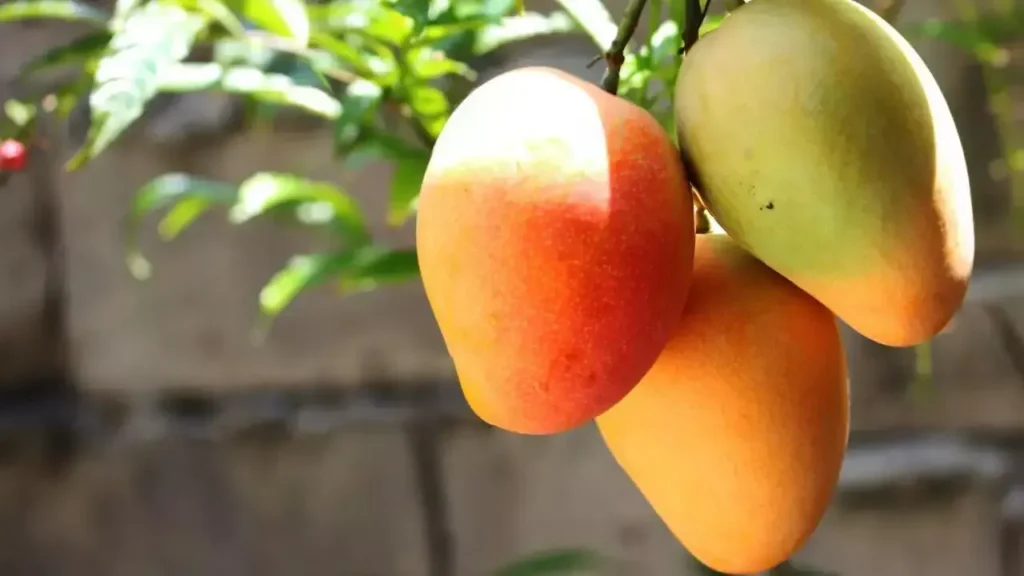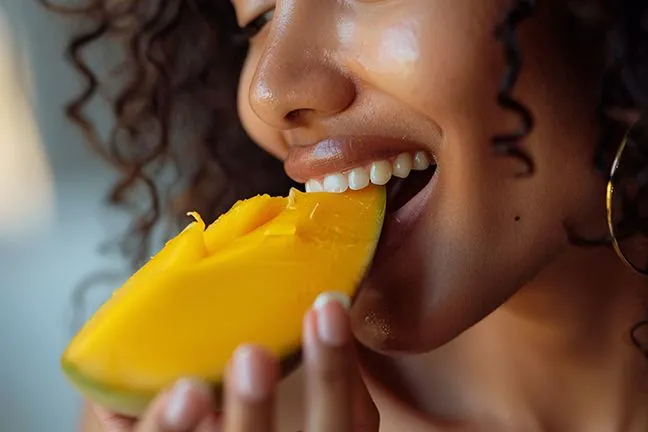Read time : 2 minutes

Mangoes, often are packed with vitamins, antioxidants, and fiber—making them a nutritious choice for most people. However, like all good things, balance is key. Despite their many benefits, mangoes are naturally high in sugars, particularly fructose and glucose, which can spike blood sugar levels if consumed excessively.
For individuals with diabetes, prediabetes, or anyone mindful of their weight and metabolic health, it’s essential to approach mango consumption with awareness. The key is portion control and combining mango with other foods that slow sugar absorption, such as fiber, protein, or healthy fats.
Why Moderation Matters
One medium-sized mango (about 200g) contains roughly 45g of natural sugars and 150 calories. While these sugars come with beneficial nutrients like vitamin C, vitamin A, and antioxidants like mangiferin, consuming large quantities can still lead to rapid increases in blood glucose.
A study published in the Journal of Nutrition and Metabolism (2015) showed that while mango has bioactive compounds that may help regulate metabolism, overconsumption can lead to unwanted calorie intake and blood sugar spikes, especially when eaten alone or juiced.
Mango and Diabetes: What You Need to Know
For people living with type 2 diabetes or insulin resistance:
- Don’t juice your mango—juicing removes most of the fruit’s fiber, causing sugars to absorb faster into the bloodstream.
- Combine mango with protein-rich foods like yogurt, roasted groundnuts, or chia seeds to reduce its impact on blood sugar.
- Stick to recommended portions: About ½ cup of diced mango (75-100g) is a sensible serving size for most people, depending on their overall carbohydrate needs.
How to Enjoy Mango the Healthy Way

To balance enjoyment and health, follow these simple tips:
- Pair with fiber or protein: Combine with oats, Greek yogurt, or a handful of nuts for steady energy release.
- Add to balanced meals: Dice mango into salads with vegetables and grilled chicken or fish.
- Limit processed mango products: Avoid dried mango with added sugar or mango-flavored sweets.
- Watch timing: Enjoy mango earlier in the day when you’re more active to help utilize the natural sugars efficiently.
Final Thought: Enjoy, Don’t Overdo
Mango is one of nature’s sweetest gifts, rich in flavor and nutrients. But like all sweet fruits, moderation is key—especially if you’re managing blood sugar or watching your weight. Pair it with fiber or protein for better blood sugar control and long-lasting satisfaction. Remember: the goal isn’t to avoid mango—it’s to enjoy it wisely.
Meet Your Ai Personal Trainer
👉Personalized workouts. Progress tracking. Real results.
MyHealthCop AI is your pocket trainer — always ready, always smart.
Download the App to Take your free Ai health assessment Today [Take Assessment]
RD, LD Julius Sammah
MyHealthCop Certified Dietician